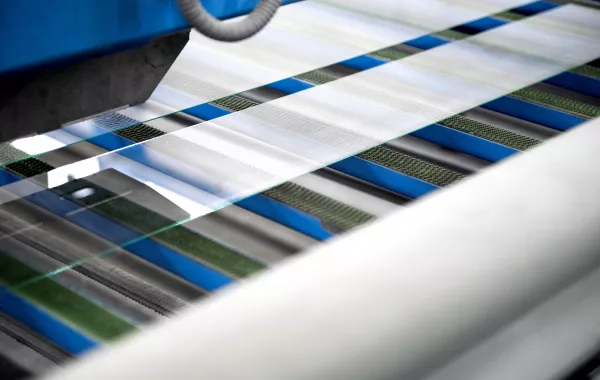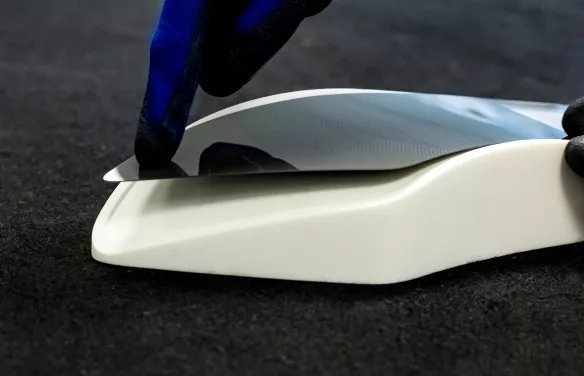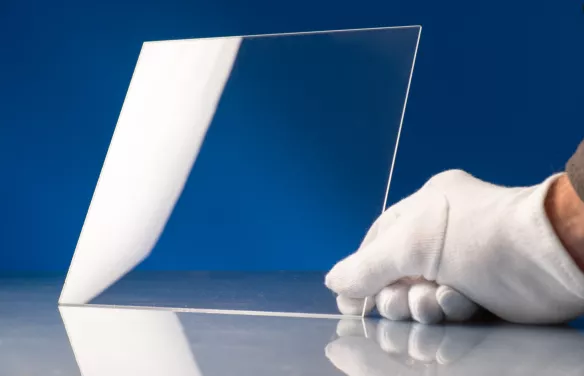

Falcon glass is a new type of glass in the aluminosilicate family. This thin and light product can be significantly strengthened for use in high-tech applications such as smartphone and tablet screens. Falcon glass delivers excellent colour rendering, with superb neutrality and a light transmission (92.2%), setting a new European record. In addition to high tech applications, these features open up new opportunities in other sectors.
Falcon’s optimal properties are the result of a complex manufacturing process. There is only one way of significantly increasing the toughness of thin glass: not via thermal toughening, which is used for thicker soda lime float glass, but rather chemical toughening, which makes the glass much tougher than thermal toughening. The major benefit of thin aluminosilicate glass is that it is better suited to chemical toughening than traditional float glass.
The characteristics of thin, strong glass are such that it can be used in multiple applications in different sectors. For example, AGC supplies Falcon for applications in the aerospace industry, such as mirrors. Falcon is also a good alternative to plastic and aluminium for automotive interiors. In construction, it can be used in large-scale projects, including decorative applications, bent glass facades, the inner sheet in triple glazing units and in terraces (banisters, floors).

Special applications naturally require specific processing operations, such as cutting, grinding, chemical toughening, printing and acid etching. In addition to the existing thin glass operations in Mol, the new thin glass processing unit in Kryry, Czech Republic can perform many different processing operations, including silkscreen printing, applying a safety film and applying a fingerprint-resistant protective coating.

In chemical toughening, the glass is immersed in a bath of molten salts. An exchange of ions causes the surface of the glass to be in a state of compression, rendering it 3 to 10 times tougher than thermally toughened glass. This process is primarily used for very thin glass (especially less than 3 mm) in applications requiring very high strength, or where optimal optical quality is required in the tempered product.
During thermal toughening, the most common method of strengthening float glass, the glass is heated to a temperature of more than 600 °C and very quickly cooled. The rapid cooling creates compression on the surface which makes the glass five times stronger than standard glass. This process cannot be used with thin glass.


